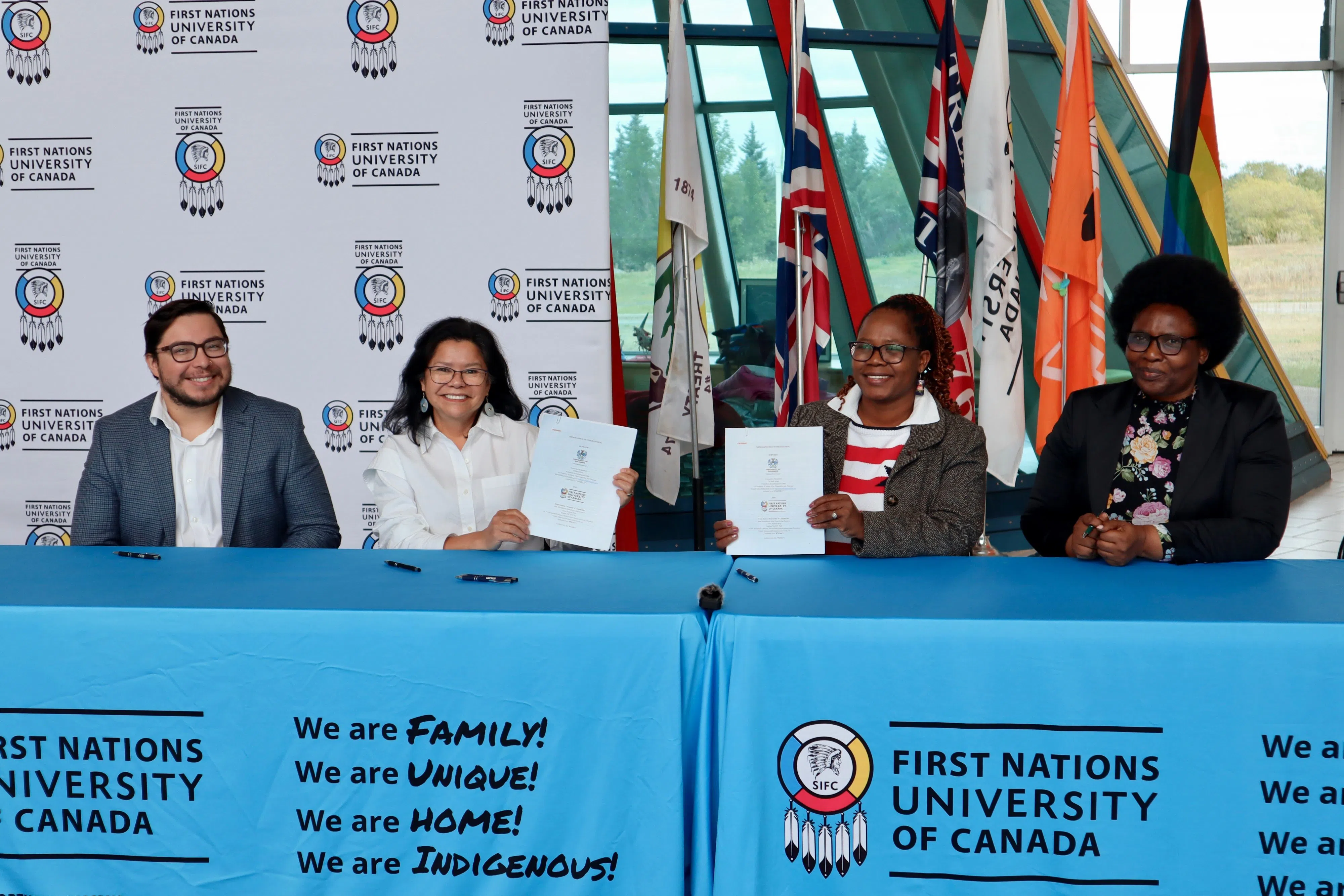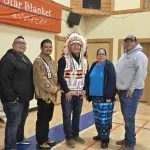
First Nations University of Canada Forms Relationship with South African School
Separated by over 15,000 kilometres and the Atlantic Ocean, two academic institutions on two different continents have formed a special connection.
The First Nations University of Canada (FNUniv), on September 5, signed a memorandum of understanding (MOU) with the University of Zululand (UNIZULU), a comprehensive African university located in Richards Bay, South Africa.
The partnership between the two institutions aims to advance global Indigenous education through opportunities for student and faculty exchanges, joint research, and cultural preservation efforts.
“I think this will allow us to explore the synergies and similarities, and of course the differences, of our knowledge systems,” said Dr. Jacqueline Ottmann, FNUniv President.
“Broadening our experiences and learning about other Indigenous peoples internationally can be life changing. What we hope is that our students will develop international networks and friendships,” she said.
The MOU was signed in Regina after three representatives from UNIZULU, including Vice-Chancellor and Principal Prof. Xoliswa Mtose, travelled to the FNUniv campus to sign the three-year official partnership.
“It was incredible commitment on their part,” said Ottmann.
“I think this partnership could lead to joint programming, it could lead to exploring how they’re reviving their Indigenous languages. And we’ve already talked about Indigenous economic and entrepreneurship.”
The partnership was sparked after Ottmann was invited to speak at the Africa Indigenous Knowledge Research Network this May in Uganda. Connecting there with representatives from UNIZULU, Ottmann found a special connection in their Indigenous knowledge and culture, despite being on the other side of the world.
“They are also very communal and tribal, and their organizational structures are very circular and inclusive, as is ours. Drum is a big part of their celebration and ceremonies. They have vibrant colours of their regalia. And they are focused on reviving and reclaiming their Indigenous language and more traditions,” said Ottmann.
“It was somewhat surreal, being immersed in that place, and watching their dancing and singing and humour.”
Founded in 1960, UNIZULU enrols the vast majority of its 17,000 annual students from African Indigenous communities. South Africa’s Indigenous population primarily refers to the Khoi-San peoples, a hunter-gatherer and pastoralist people who traditionally speak in click languages and are considered one of the oldest populations of modern humans on Earth. They Khoi-San make up about one percent of the country’s population.
“One of the things they want to learn from us – how do you embed Indigenous knowledge systems into sciences, into literature, into business programming, into fine arts, into social work, into all programming,” said Ottmann.
In August, FNUniv announced a three-year $500,000 travel bursary investment from Scotiabank, established to help remove financial barriers for Indigenous students who need travel.
While Ottmann said a lot of student exchanges with African universities take place virtually, the investment from Scotiabank will make it “highly possible” for FNUniv students to travel to South Africa, she said.
She said there has been a growing awareness and appreciation for FNUniv’s sophisticated knowledge systems with international academic institutions, which may generate more and deeper levels of learning for FNUniv students.
“I appreciate the openness and growing awareness that the FNUniv has internationally. There are learning institutions globally that are interested in what the priorities are for us in our Indigenous knowledge systems,” said Ottmann.

